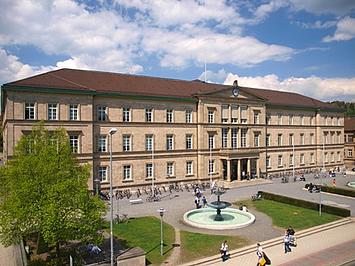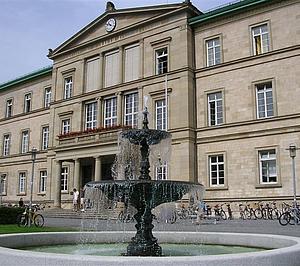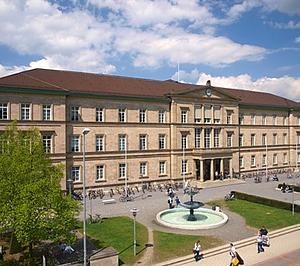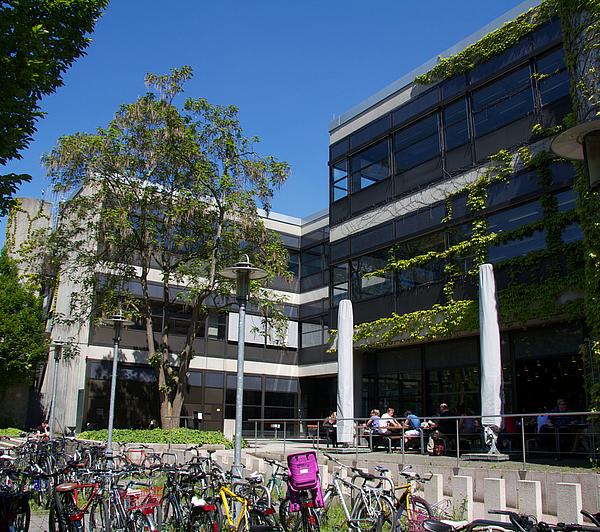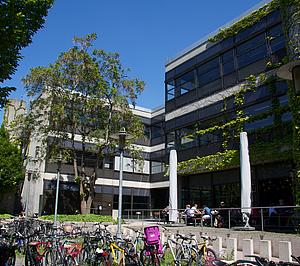Experts in economics become ever more important for societies to master key challenges of the future.
The M.Sc. Economics builds upon the expertise and reputation of our faculty in various fields of economics. It offers a lot of flexibility and is the most versatile program in economics that we offer. If you want a program that allows you to choose courses from the areas of economics that you find most interesting, this is the program for you.
Experts in economics become ever more important for societies to master key challenges of the future, such as achieving sustainable growth and avoiding unacceptable levels of economic inequality or unemployment. A broad range of field courses and electives gives you all the necessary flexibility to develop your individual academic profile in order to become such an expert.
Graduating from this program, you will be able to understand the driving forces behind major economic trends and what these mean for firms, workers, and governments. You will acquire the skills to analyze economic data professionally and understand the logic of economic problems.
In addition to the M.Sc. in Economics, the School of Business and Economics offers two related programs:
- M.Sc. in International Economics
- M.Sc. in Economics and Finance
Each of these programs starts with core courses that prepare you for subsequent field courses. They draw on a common pool of field courses, but each program has its specific curricular requirements that reflect its philosophy and orientation.
Double Degree Option
This program can be completed as a double degree with the University of Nottingham. Find more information on our website.
Curriculum
Students are required to earn a total of 27 ECTS credits from advanced courses in macroeconomics, microeconomics and econometrics (time series or microeconometrics). They also choose specialized field courses in economics that range from economic theory to applied economics, adding another 27 ECTS credits. Moreover, within the elective courses students have the option of taking additional field courses or complementing their studies by taking courses in related fields. Students can also benefit from the wide variety of disciplines taught at the University of Tübingen by choosing an elective course from an extensive number of courses offered by other departments and institutions at the university.
Some courses also offer an empirical tutorial in which students learn to use econometric and statistical software packages (Matlab, GAUSS, SAS, Stata) to perform empirical analyses and to implement numerical methods in economics. A command of these tools enables our students to write Master theses with genuine quantitative research results. The importance of the Master thesis is reflected in its weight of 30 ECTS credits, which is equivalent to a six-months period fully devoted to working on the thesis.
Professional Career
Graduates of the M.Sc. in Economics are well-equipped to either pursue an academic career or an ambitious professional career. We offer a Master’s degree that enjoys an outstanding international reputation and gives you a competitive edge on the job market. You will acquire up-to-date scientific knowledge that is in high demand for a broad range of professional careers. Graduates may aim for a doctoral degree (Ph.D.) or careers in business and finance as well as administrative positions in the public sector and international institutions. Moreover, career paths in economics and finance also include policy advising, publishing, consulting and research.
Ph.D. Track
Graduates will also find themselves well-positioned to pursue a Ph.D. subsequent to this M.Sc. program. Towards this end, students may study this M.Sc. program on a Ph.D. track, putting themselves on a fast track to a doctoral degree in Economics.
The Ph.D. track requires 27 ECTS credits from courses explicitly marked as Ph.D.-oriented. These courses take students to the frontier of academic research. Moreover, Ph.D.-track students need to write a high-quality Master thesis that can serve as a starting point for their Ph.D. thesis.
Admission to the M.Sc. in Economics requires a Bachelor’s degree in economics, business studies or a related field with excellent grades. Applicants are expected to have sound intermediate level knowledge of microeconomics, macroeconomics and quantitative methods.
The entire program is taught in English. Applicants should therefore have an excellent command of the English language. Knowledge of German is not required to complete the program. However, German classes are available for international students.
For further information, please refer to our website.
The program is free of tuition fees for all EU residents. The state of Baden-Württemberg has introduced fees for international non-EU students and second-degree students. For background information and for fee exemption options, please refer to this link.
Please note that the University of Notthingham charges additional tuition fees. For further information, please refer to our website.
Dates
Admission is subject to a competitive selection procedure that includes individual interviews with faculty members. Shortlisted candidates from overseas will be interviewed in a video conference.
Application deadline: May 15
Our programs start at the beginning of October.
Please refer to our homepage to find out when we will be holding interviews this year.
The School of Business and Economics at the University of Tübingen is committed to high-level academic education in both business administration and economics. It features a faculty of 26 professors and about 45 junior researchers, all of whom are actively engaged in academic research. Our Bachelor and Master programs mirror the widely respected academic expertise of the faculty. Students benefit from courses taught at the frontier of academic research as well as from dedicated tutoring and learning in small groups, with close contact to academic staff. The School of Business and Economics offers three Bachelor of Science programs and ten different Master of Science programs that allow students to specialize in areas with promising career prospects.
The Master programs at the School of Business and Economics
- Accounting and Finance (M.Sc.) >
- Economics (M.Sc.) >
- Economics and Finance (M.Sc.) >
- European Economics (M.Sc.) >
- European Management (M.Sc.) >
- General Management (M.Sc.) >
- International Business (M.Sc.) >
- International Economics (M.Sc.) >
- Management and Economics (M.Sc.) >
- Data Science in Business and Economics (M.Sc.) >


